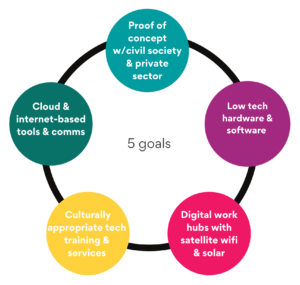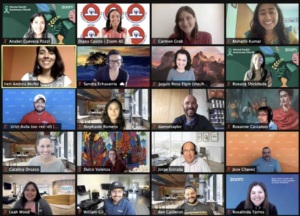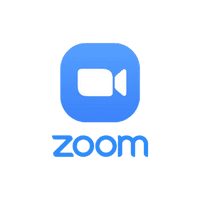New Multi-year Tech Programming
PSYDEH is thrilled to announce multi-year programming to innovate a proof-of-concept for integrating culturally appropriate sustainability-focused tech like solar, as well as information and communication technology (ICT) like satellite wifi, cloud tools, low tech hardware into day-to-day operations, and the rural communities in which we live and work.
 What is the program?
What is the program?
Our multi-year program forges emergent agency and solidarity at the nexus of digital access and education, gender equity, and economic solidarity, pursuant to local demands and consistent with 2030 Sustainable Development Agenda Goals.
Objectives include:
(1) Low-tech hardware and software, as well as sustainable development technology like solar, become staples of PSYDEH’s work.
(2) Culturally appropriate tech training and services become essential tools for empowering women to drive their own sustainable local community development.
(3) Women-led cooperatives (mostly Indigenous) in our Sierra Red Network use internet-based tools to self-sustain while digitally communicating their stories.
(4) Network of digital work hubs improving access to and smart use of ICT throughout the rural areas in which work.
(5) A roadmap for Mexican and Global South non-profits on partnering with diverse organizations and companies to integrate ICT into organizing and education initiatives.
Programming impact includes:
(A) BOOST program coordination: In the areas in which PSYDEH works, wifi and phone signals remain weak, power cuts are normal, and we lack access and knowledge on how to use computing tools. Planned programming will result in the best ICT and solar power solutions suitable for coordinating our work in rural, underdeveloped Mexico.
(B) LINK fieldwork and programming to the outside world: Increased connectivity with global human networks and resources will expand knowledge and opportunities.
(C) CONNECT staff and women partners: Mobile communication technology solutions and a network of digital work Hubs with satellite-wifi and information technology powered by renewable, grid-independent solar will be game-changing for our ability to offer adequate and consistent human support and outreach. At a minimum, more interconnectivity helps women to be and feel less alone.
(D) INNOVATE 21st-century tools for rural, popular education-style teaching: Integration of ICT greatly expands what we can do and how we can offer educational programming, both (a) how to use ICT when general IQ on smart use of viable technology solutions is low due to historically limited-to-no-access to technology, and (b) delivering economic solidarity programming to isolated women allies in accessible ways, at our main Hub or via another four remote hubs with access to satellite wifi and solar.
(E) DEVELOP contextually appropriate tech solutions: Local needs guide PSYDEH’s work. We want to ensure that any technology-based projects follow our partner-first model. We’re still brainstorming how technology will be used as a solution at every stage of programming, but our intentionally-built ecosystem of partners will help us get there. Resources include a global Community of Practice around nonprofits using technology to educate, multiple tech companies and government partners, and our multi-disciplinary, majority women team.
We’ve already seen how short-term digital access via new satellite wifi services used by PSYDEH staff and local government inspires trust and connects citizens to resources needed for medium-and long-term efforts. The above objectives and impact are designed pursuant to what Indigenous women and their communities want and need: more and better access to digital tools essential for leading local, sustainable economic development.
Programming years in the making
 Access to and smart use of technology is vital to any sustained effort to navigate tough challenges like inequality. The complicated, rural landscape in which we work grew more so in 2020 and then 2021. COVID-19 and climate change cut access to electricity and information and communications technology (ICT) as well as local mobility, all of which impacted Mexico’s economic life. We saw the greatest increase in poverty across the Americas, with 65% of the population reporting less income. We also saw how many Indigenous women allies felt that much more isolated and abandoned, including and especially by PSYDEH. This was painful to learn, and not surprising. Historically, funding constraints meant we offered only sporadic in-person consultation, and never individual personal coaching or psychological/legal consultations. This reality was compounded tenfold in 2020 when government lockdowns prohibited us from visiting women allies for much of the year.
Access to and smart use of technology is vital to any sustained effort to navigate tough challenges like inequality. The complicated, rural landscape in which we work grew more so in 2020 and then 2021. COVID-19 and climate change cut access to electricity and information and communications technology (ICT) as well as local mobility, all of which impacted Mexico’s economic life. We saw the greatest increase in poverty across the Americas, with 65% of the population reporting less income. We also saw how many Indigenous women allies felt that much more isolated and abandoned, including and especially by PSYDEH. This was painful to learn, and not surprising. Historically, funding constraints meant we offered only sporadic in-person consultation, and never individual personal coaching or psychological/legal consultations. This reality was compounded tenfold in 2020 when government lockdowns prohibited us from visiting women allies for much of the year.
Step in the Zoom company around Int’l Women’s Day 2021. Zoom’s LatinX and Hispanic Somos ERG, aided by the company’s CSR initiative Zoom Cares, chose PSYDEH for a multi-phased partnership explained in more detail here. This work put in place a number of foundational elements on which Tec Para Todos is built, including our programming flagship partner Team4Tech.
 Select Programming Partners
Select Programming Partners
As a publically traded USA company, Zoom helps its clients to express ideas, connect to others, and build toward a future limited only by imagination. They are the only communications platform that started with video as its foundation, catering to large enterprises, small businesses, and individuals alike.
 Team4Tech is a US-based nonprofit advancing progress around United Nations Sustainable Development Goal 4.4 – “ensure inclusive and equitable education and promote lifelong learning opportunities for all”. They do this by partnering with global technology companies like Adobe, Cadence, HPE, Intel, and Zoom to build and implement social impact projects that provide ICT technology grants and training to nonprofit partners with the aim to build their capacities to better educate underserved learners.
Team4Tech is a US-based nonprofit advancing progress around United Nations Sustainable Development Goal 4.4 – “ensure inclusive and equitable education and promote lifelong learning opportunities for all”. They do this by partnering with global technology companies like Adobe, Cadence, HPE, Intel, and Zoom to build and implement social impact projects that provide ICT technology grants and training to nonprofit partners with the aim to build their capacities to better educate underserved learners.
